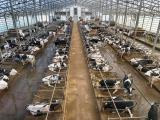Jul 29, 2004 (CIDRAP News) – Thailand, home of the world's fourth-largest poultry industry, has confirmed that the recent re-emergence of avian influenza has spread to 21 provinces, three more than just yesterday. Meanwhile, Vietnam's state media yesterday reported that the disease there now affects Bac Ninh province in the northern part of the country in addition to the 11 southern provinces already affected.
These reports came as a group of Southeast Asia experts convened by the United Nations Food and Agriculture Organization (FAO) in Bangkok meet to discuss ways to improve surveillance and control. According to the Associated Press, delegates have made plans to establish an avian flu surveillance registry within 2 years. No base of operation has been announced, but Thailand's Deputy Prime Minister Chaturon Chaisang offered his country as a regional coordination center location at the meeting's opening ceremonies yesterday.
Announced today at the meeting by Joseph Domenech, FAO's chief of animal health services, is the fact that the agency is planning to issue guidelines by the end of August urging wider vaccination of birds in the containment effort, says an International Herald Tribune report. The recommendation is based on findings indicating that avian flu has become firmly rooted in domesticated ducks and wildlife so cannot be destroyed by the usual measures of culling and quarantines, said Domenech.
The FAO, along with the World Health Organization and the World Organization for Animal Health, in February recommended that countries with avian flu outbreaks consider vaccinating poultry, according to the Herald Tribune. The upcoming guidelines are expected to be stronger, although each country would be free to decide whether to carry out a vaccination program. At present, Thailand and several other countries have banned vaccination, while Indonesia has undertaken a program, says a channelnewsasia report.
Widespread vaccination is controversial. It is expensive—each dose costs about 5 US cents and each bird should be vaccinated two or three times. More major in terms of cost is administration—current vaccines must be injected, which is costly and also may be unrealistic in remote rural areas, according to an Agence France-Presse report. Moreover, vaccinating large numbers of birds could expose humans to healthy-looking birds that still harbor H5N1, Domenech acknowledged.
A vaccine that animals could swallow is seen by some experts as an urgent need. An announcement today by Xinhau, China's state news agency, says the patent-pending botanical extract V38-AMF-1, made by two Hong Kong pharmaceutical companies, has been discovered to completely inhibit H5N1 avian influenza as well as several other infections in vitro. The agent, to be tested in poultry beginning in the fall, can be provided as a powder to be added to drinking water, according to a press release.
In Vietnam, 400 ducks from three farms northwest of Hanoi in Vietnam have been destroyed after testing positive for H1 avian flu. This follows the culling of 1,400 ducks from a nearby farm a couple of weeks ago, according to The Nation, a Thai newspaper.



















